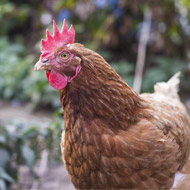CO2 shortage putting poultry welfare at risk

60 per cent of the British poultry meat sector uses CO2 to stun birds as part of the slaughter process.
The BVA has raised concern over the current carbon dioxide (CO2) shortage and what it means for poultry welfare.
CO2 is used as a humane method of stunning poultry. But the BVA fears inadequate supplies could lead to a backlog of animals and a critical animal welfare situation. Furthermore, a lack of CO2 would affect the ability of farms to carry out on-site emergency slaughter, it said.
The BVA is now calling on all major gas produces to prioritise CO2 supplies to slaughterhouses in order to ensure standards of animal welfare are maintained and to keep the food chain moving.
“The British poultry industry has some of the highest welfare standards in the world and action must be taken to ensure that these CO2 shortages do not jeopardise the UK’s reputation in this area,” it said.
CO2 is a by-product of the production of ammonia for fertiliser. Its production normally comes to a halt during the spring and stocks are used to supply contracts.
In the past year, however, there has been a below average production of ammonia, and hence CO2, due to low prices. A technical issue at one gas company has also further restricted production.
The British Poultry Council said that as much as 60 per cent of the British poultry meat sector uses CO2 to stun birds as part of the slaughter process, and all companies use CO2 as part of the packaging process.
It is now working with Defra and the Food Standards Agency to explore what supplies are available and how they can be prioritised.



 The latest
The latest